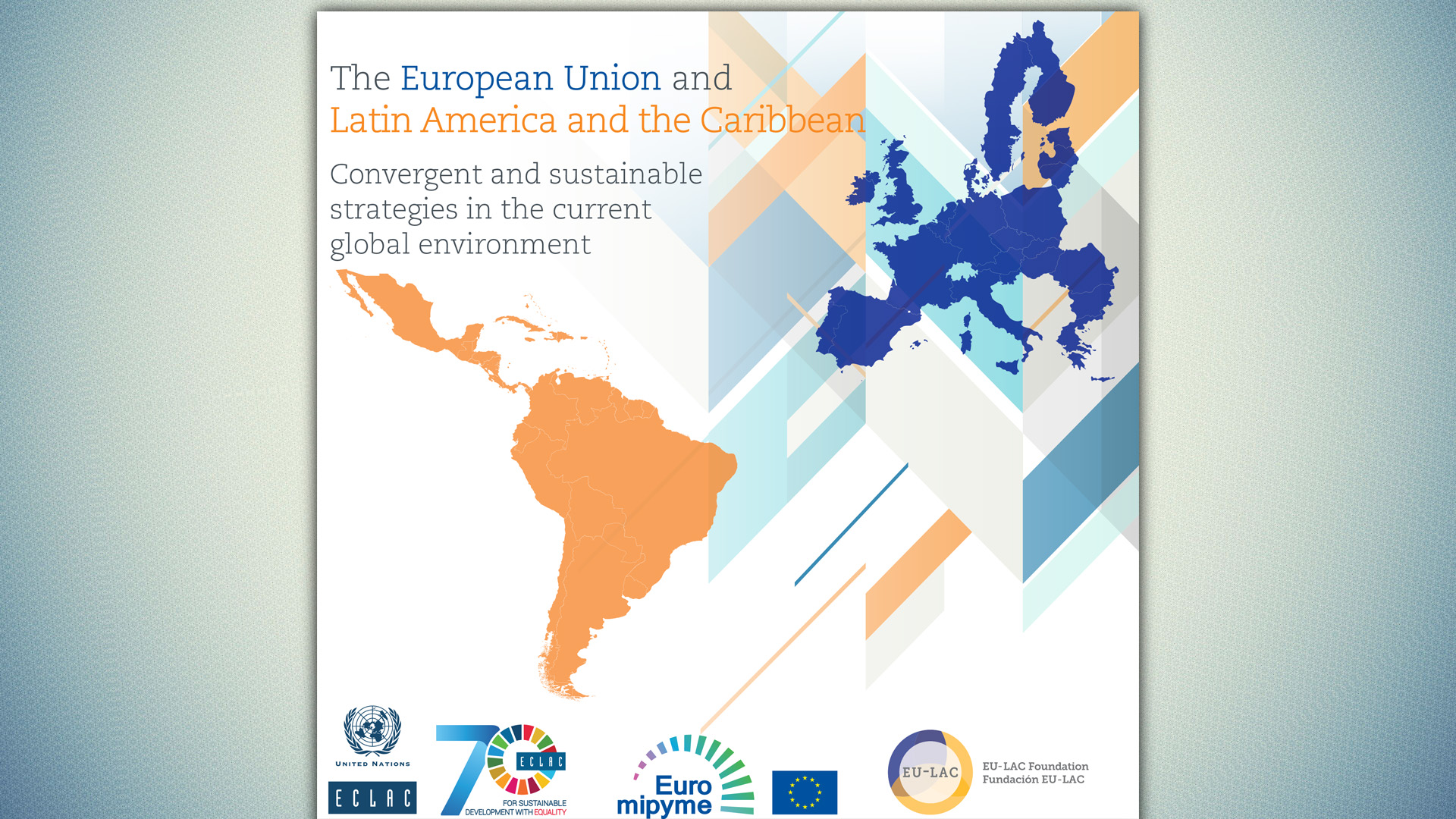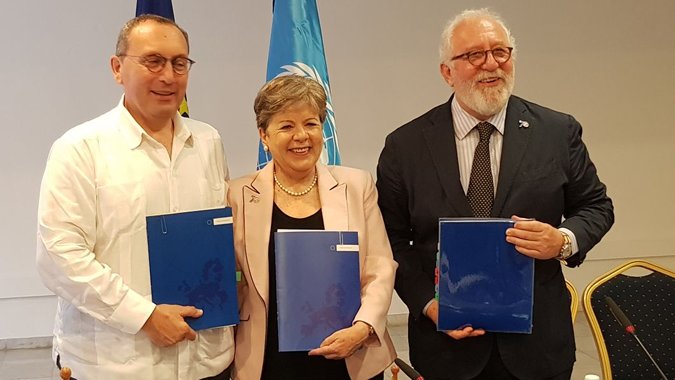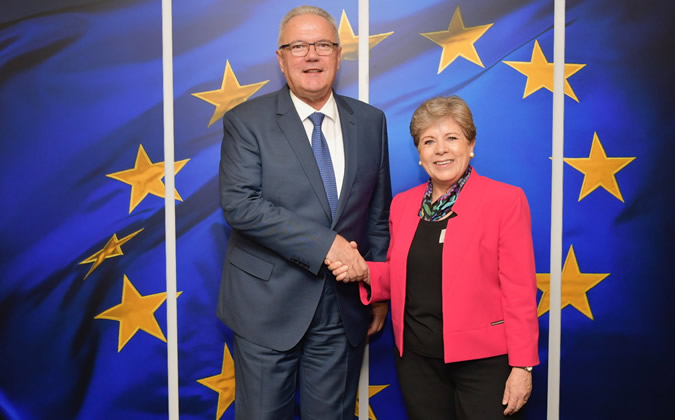ECLAC Advocates for a Renewed Strategy of Dynamic Cooperation Based on Multilateralism between Latin America and the Caribbean and the European Union
Work area(s)
The United Nations regional organization presented a new document with policy recommendations in the framework of the second EU-CELAC Foreign Ministers Meeting held in Brussels.

In the midst of current global tensions, the countries of the Community of Latin and American and Caribbean States (CELAC) and the European Union (EU) have the opportunity to renew their strategy of bi-regional cooperation based on multilateralism to advance toward achieving more modern, productive and inclusive societies, in line with the commitments of the 2030 Agenda for Sustainable Development and the Paris Agreement on climate change, according to a new publication by the Economic Commission for Latin America and the Caribbean (ECLAC).
The document The European Union and Latin America and the Caribbean: Convergent and sustainable strategies in the current global environment was prepared for the second EU-CELAC Foreign Ministers Meeting held on July 16-17 in Brussels, Belgium, under the theme “Building bridges and strengthening our partnership to face global changes.” Mario Cimoli, ECLAC’s Deputy Executive Secretary, a.i., attended the event, along with 27 ministers and two vice-ministers of foreign affairs from the CELAC countries.
The publication describes the current globalization crisis, presents a panorama of the economic, social and environmental situations in both regions, examines existing trade and productive integration and addresses the potential role to be played by new technologies and digitalization, as well as micro, small and medium-sized enterprises (MSMEs) in more inclusive productive development.
The text also analyzes the challenges of economies in transition and identifies concrete spaces for cooperation, both in the area of macroeconomic policies, science and infrastructure, technology and innovation, as well as in strategies for mitigating the effects of climate change, to name a few.
In 2017, after two years of regional GDP contraction (from -0.2% in 2015 and -0.8% in 2016), the economy of Latin America and the Caribbean appears to have attained modest positive growth of 1.3%, according to ECLAC’s estimates. European Union GDP, meanwhile, experienced growth of 2.4% in 2017, above the 2.0% registered in 2016, according to the document.
The EU remains the region’s third trade partner, behind the United States and China: in 2017 bilateral trade reached 231 billion dollars, 9% more than in 2016. The European Union is also the biggest investor in Latin America and the Caribbean: between 2010 and 2017, 39% of the total value of new projects announced in the region belonged to EU firms, relegating US firms to second place (31% of the total).
In this context, European companies are key to advancing toward a sustainable energy matrix: 26% of the total amount announced from the European Union is aimed at renewable energy ventures, highlighted the publication prepared by ECLAC as part of a joint effort between the EU and the European Union-Latin America and the Caribbean (EU-LAC) Foundation.
The European experience is also a point of reference for the development of MSMEs and the institutions promoting them, underlines ECLAC, which is currently implementing the project “Better policies for micro, small and medium-sized enterprises in Latin America (EUROMIPYME),” financed by the European Union.
Today we open “a space for rethinking cooperation between the CELAC member countries and the European Union: a renewed, dynamic cooperation based on multilaterlism, that goes beyond trade integration, that strengthens the shared vision and values of both regions,” propose Alicia Bárcena, ECLAC’s Executive Secretary, Stefano Manservisi, Director General for International Cooperation and Development of the European Commission, and Leonel Fernández, President of the EU-LAC Foundation, in the prologue to the document.
This requires, they add, a cooperation strategy “that promotes investment and forges truly productive integration, encourages the transfer of technology and innovation, favors inclusion in micro, small and medium-sized enterprises and, finally, that allows us to move forward in achieving progressive structural change with greater levels of productivity, with more and better jobs, in addition to higher salaries.
Related content

European Union, OECD and ECLAC Sign Agreement to Facilitate the Development of Countries in Transition
The instrument was signed today in the framework of ECLAC’s thirty-seventh session, which is taking place through Friday, May 11 in Havana, Cuba.

Strategic Alliance between the European Commission and ECLAC is Renewed
Alicia Bárcena, Executive Secretary of the regional United Nations organization, met in Brussels with Neven Mimica, the European Union Commissioner in charge of International Cooperation and…
Country(ies)
- European Union
- Latin America and the Caribbean
Related project(s)
Contact
Public Information Unit
- prensa@cepal.org
- (56 2) 2210 2040
